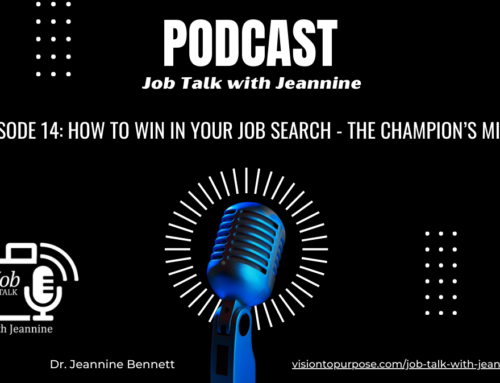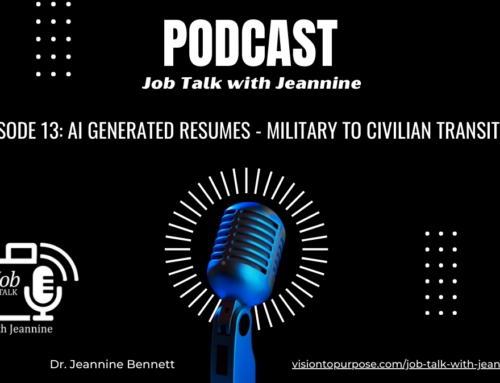
Four Indicators that Reveal if You are Actually Listening to the Smart People You Hired!
The other day, I noticed a quote posted on LinkedIn that made me smile. Below is the quote:
“It doesn’t make sense to hire smart people and tell them what to do; we hire smart people so they can tell us what to do” ~ Steve Jobs
There is some real truth in that message. Did the quote get you thinking about anything you have encountered over your professional career? Here is what came to mind for me:
- As a leader seeking input, have I always sought advice from the right people? Unfortunately, no. In fact, I can remember on more than one occasion when I did not listen to someone smarter than me. In my younger days it was pride, plain and simple. I am not sure where I got it from, but for some strange reason I thought I had to know everything to get ahead. I am grateful for past mentors who set me straight. Thankfully, the older and wiser Jeannine knows the secret to knowing it all is to surround yourself with individuals who together know it all.
- As the employee, how many times have I been frustrated because I was not asked for my input? Truthfully, a lot. However, if I am being honest with myself, it was not always my leader’s fault I was not heard. It is a two-way street when it comes to communication. There were many times I did not speak up or demonstrate I had the expertise so how on earth could anyone know my level of erudition. Again, good mentors helped changed the way I interacted with others at all levels which provided me with the opportunity to get a seat at the table to contribute to the conversation.
Although it took me a little while, I can say with confidence that I am very fortunate and very thankful to have listened to many individuals a lot smarter than me which is a key reason why I am writing this article.
Below are some questions for you to ponder. If they don’t apply to you, they might just apply to some of your employees. Review the questions with an open mind and then move on to the indicators to see how you are doing.
Questions:
- How many times in your career have you been in a meeting and your boss turns to another individual to ask a question about a topic in which YOU are the subject matter expert?
- How about a project you heard was going to be launched and you knew the company was looking for an individual to lead the effort? You shared your interest and were confident you were going to be selected. Rightly so, you possessed the specialized experience and even won awards over the years for work on similar projects with previous employers. A fact so well-known inside and outside of the organization that you never had to say a word about your success. Yet, the day came and surprise, you were NOT selected for the project. What? You were shocked right?
- Okay, maybe you were fortunate throughout your career and neither of those situations happened to you so I will try one more to see if it resonates. How about the job you were in line to get based on your experience and seniority with the organization yet you did not get the job? In fact, someone with very different qualifications was selected and you were placed in a position in which your expertise was not utilized at all. Has that ever happened to you?
I share the very different scenarios because they happen a lot more than you think. Employees are unique individuals who communicate very differently. If you do not get to know them you may be missing out on the expertise they possess. In fact, you could have the smartest person on staff and not even realize it. As a result, you hire outside consultants for an exorbitant amount of money to do a specialized task when you have someone in-house who could actually do it. Instead, that smart person is assigned tasks that are well below their intellectual and skill level, which will inevitably cause the person to leave the organization probably to work for one of those large consultancies you end up hiring. What a twist of fate that would be.
Ironically, I witnessed that exact situation about 10 years ago. I worked with a man who possessed a Ph.D. from a prominent school in Southeastern Virginia. This individual was brilliant. He was so smart that he wrote no less than 50 scholarly journal articles, was a proven expert in his field, and served as the head of the Research Department at that prominent university before taking a job with the organization where I met him. Sadly, he was aligned to a manager of a department who did not realize his worth. Instead, that manager, possessing no academic credentials, assigned him to making binders for the executive leadership. Yes, you read that correctly. He copied, punched holes in paper and put said papers in binders. What a complete waste of talent. The individual stayed for a while hoping things would change, but he got so bored that he left to take a coveted position with a large research and development company that did eventually provide services to the organization he left. Ouch!
Below are four indicators that will tell you if you are actually listening to the smart people you hired.
Indicators:
Listening More Than Talking. If you are listening to your people more than you are talking to them that is a good sign. This is an indicator that you have given good guidance upfront and people feel comfortable sharing their thoughts with you. It is another signal that you have built a strong culture of trust within your organization and people are embracing it and you.
If, however, you find that you are doing most of the talking, you may not be listening to the right people. Why? Take a moment and think about how this happened. Perhaps the guidance you shared did not reach everyone in the organization. People won’t typically speak up when they don’t feel confident about a particular topic. Maybe, you have not had the opportunity to walk around the organization to really get to know your people. If that is the case, then that would explain why your employees are quiet when you do arrive. They are not sure what to say; however, do not let that stop you. Continue to make the rounds and your employees will eventually open up. Effective communication is important and listening is a key part of the process.
Group Think Does Not Exist. You are pleased with the diversity on your staff. At meetings, you get responses that provide a good mix of perspective and experience that ultimately help you tackle some of your greatest organizational challenges. You rarely get people regurgitating overused advice. Congratulations, group think does not exist in your organization.
If, however, you are not getting the responses you need, you should look to see if you have surrounded yourself with too many like-minded individuals. If so, how did it happen? Did you select people to be your advisors based on title alone? Did you select individuals because you have known them for years and have the same interests? After you figure out the issue, make some immediate changes so group think won’t continue to fester within the organization.
To realize change you need people to think differently and that requires a bit of diversity to make that happen.
Talent Known. You know the individuals on your staff well. You recognize employees who possess specialized talent and have even utilized them to help you resolve some of your most pressing organizational issues. Awesome, you do not have a problem at all.
Perhaps this is not the case. Instead, you discover that you are spending more money on consultants than in previous years. It could be that you really do need experts not currently on your staff OR it could be that leaders within your organization do not truly know the people they have working for them?
You can assess the situation by having a frank conversation with your employees. Open dialogue during a town hall meeting or other gathering in which you can ask your employees about their interests and skills is a good option. People who are passionate about a topic or hold a specialized skill are often willing to share when asked and being in a large setting with the masses will not deter them.
No Work Level Issues Present. Employees in your organization are informative, collaborative, innovative and productive. You have received no complaints about job satisfaction and employees are eager to work on special projects without even being asked. This is an indicator that you do not have any major work level issues in your organization. Employees feel appreciated and are recognized for the skills they possess. Fantastic, this is what we all strive to achieve!
If this is not what you are experiencing than you need to do some investigating to find out what is going on within your organization. It won’t take long to find some unhappy employees who are willing to share. Do not be surprised if you discover that you have senior personnel doing lower level tasks like the story I shared previously. Please save them before they leave out of boredom or frustration.
I hope this article was helpful. I would love to hear of any of your professional endeavors in which you encountered similar or different experiences from what I presented.
Sincerely,
Jeannine








